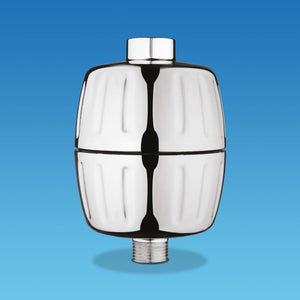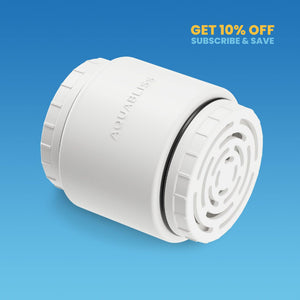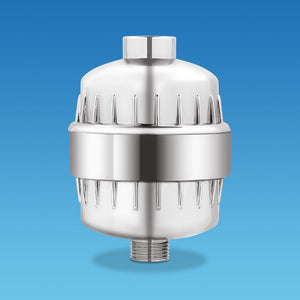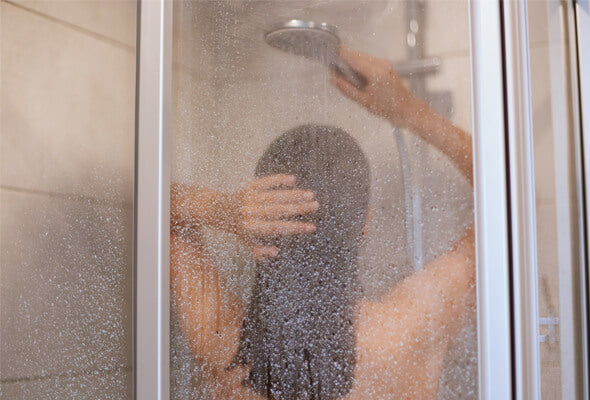Do cold showers boost the immune system, or is it just a wellness myth? Many people across the globe swear by cold water therapy, claiming it improves immune function, circulation, and overall health. But what exactly does the science say?
Research suggests that taking cold showers may indeed stimulate the body's immune response, potentially leading to fewer symptoms of illness and better immune system activity. A 2016 study in PLOS One found that individuals who took cold showers daily were 29% less likely to call in sick to work.
Another study in The Journal of Applied Physiology (1999) reported that cold exposure increases norepinephrine, a hormone linked to immune system activation and reduced inflammation.
When exposed to cold water, the body undergoes rapid physiological changes: blood vessels constrict, circulation improves, and the sympathetic nervous system is activated. These responses may help the body fight infections, regulate inflammation, and promote immune resilience.
This article explores the science behind cold therapy, explaining how it influences immune function, its potential risks, and offering practical tips for incorporating it. It also explores how using a shower filter can enhance the benefits of cold water therapy by providing cleaner, healthier water for a more enjoyable and effective experience.
What Is the Immune System?
The immune system is the body's defense mechanism against infections, bacteria, and viruses. It operates through a complex network of cells, tissues, and organs- identifying and eliminating harmful invaders while maintaining overall health.
Key Components of the Immune System
Each part of the immune system plays a distinct role in defending the body:
- White Blood Cells (Leukocytes): These cells detect and destroy pathogens. Cold exposure has been linked to an increase in white blood cell production, potentially strengthening immune function over time.
- Antibodies: Proteins that neutralize harmful substances and prevent infections. Cold therapy can improve their production by activating the sympathetic nervous system.
- Lymphatic System: This network of lymph nodes and vessels helps remove toxins and circulate immune cells. Cold showers may aid lymphatic drainage by enhancing circulation.
- Bone Marrow: The source of white and red blood cells, essential for a healthy immune system. Some studies suggest cold exposure may stimulate bone marrow activity, boosting immune defense, but more research is needed.
- The Skin Barrier: The first line of defense against bacteria and viruses. Cold exposure may enhance skin resilience by tightening pores and improving hydration retention.
The Science and History Behind Cold Showers

Cold exposure has been practiced for centuries across different cultures for improved circulation, increased metabolism, and better mental health due to its anti-depressive effect.
The ancient Greeks, including Hippocrates, used cold baths for health benefits, believing they could invigorate the body and treat ailments. In Scandinavia, the tradition of alternating between hot water and cold water plunges is thought to boost circulation and strengthen the immune system.
Similarly, in Russia, cold baths, part of the banya tradition, are believed to improve circulation and promote longevity. In Japan, the practice of Misogi (which is cold water immersion under waterfalls) is used for spiritual and physical purification. These historical practices highlight the long-standing belief in the benefits of cold exposure.
However, the quality of the water you use can impact how effective this process is. Unfiltered water can contain chlorine, heavy metals, and bacteria, which can disrupt the skin barrier and cause irritation, reducing the potential benefits of cold showers.
Cold therapy typically involves water temperatures below 70°F (21°C), which causes an immediate physiological response in the body:
- Blood circulation increases, improving oxygen transport and supporting faster immune cell transport.
- The sympathetic nervous system activates, triggering immune responses and helping regulate stress levels.
- Cold exposure stimulates adaptive responses to stress and infections, boosting the body’s ability to cope with environmental challenges.
- The body releases more anti-inflammatory chemicals, reducing chronic inflammation and helping muscle soreness.
- The metabolic rate increases, generating extra heat and activating fat cells, such as white fat and brown adipose tissue (BAT). This helps to burn calories and improve weight loss over time.
- Higher oxygen uptake improves cellular function and immune resilience.
- Cold exposure reduces oxidative stress, which contributes to aging and immune suppression.
- Cold exposure may increase white blood cell production, stimulating the immune response.
- Cold showers are good as they help regulate blood pressure and heart rate, improving cardiovascular health. They can help to prevent cardiovascular disease.
- Cold exposure helps balance the sympathetic and parasympathetic nervous systems, promoting relaxation after stress.
- Cold showers may help boost dopamine levels, enhance mood, and reduce depressive symptoms.
How Cold Showers Influence Immune Function

Below are key ways in which cold showers can positively influence immune function.
1. Activating the Sympathetic Nervous System
When exposed to a cold shower, the body enters a heightened state often referred to as survival mode. This state is triggered by the activation of the sympathetic nervous system, which is responsible for managing stress and alertness.
The body increases its respiratory rate and activates the sympathetic nervous system, which is responsible for managing stress and alertness. A key hormone released during this response is norepinephrine, which plays a vital role in immune function.
Norepinephrine helps regulate the body’s immune response by stimulating the production of white blood cells, essential for fighting infections such as viral and bacterial infections. It also works to reduce inflammation, allowing the body to cope better with and recover from health challenges.
2. Increasing White Blood Cell Count
A study by Kox et al. (2014), published in Proceedings of the National Academy of Sciences, examined how voluntary cold exposure can activate the body's sympathetic nervous system, leading to enhanced immune responses.
A control group was used to compare individuals who regularly practiced cold exposure with those who did not. The study found that people who were exposed to ice water showed increased production of white blood cells, which are essential for fighting infections.
This activation of the immune system was linked to a rise in norepinephrine, a hormone that plays a key role in immune regulation and inflammation reduction.
These findings suggest that there is a direct connection between cold water exposure and immune system enhancement, supporting the idea that regular cold showers may help to better immune health by stimulating the body’s natural defense mechanisms.
3. Reducing Chronic Inflammation
Cold exposure can help reduce inflammation by lowering the levels of inflammatory proteins in the body. These proteins, such as cytokines and prostaglandins, are linked to chronic conditions like arthritis and heart disease.
When the body is exposed to cold, blood vessels constrict, which slows down blood flow to areas with inflammation. Afterward, blood vessels dilate, allowing fresh, oxygen-rich blood to flow in and help remove waste products from the affected area.
This process helps reduce swelling and inflammation. For people with conditions like arthritis (where inflammation causes pain and joint damage) cold therapy is able to offer relief by reducing swelling.
In heart disease, reducing inflammation can help protect blood vessels from damage and lower the risk of developing more serious problems, like clogged arteries, which can lead to heart attacks and stroke.
4. Improving Circulation
Cold exposure causes blood vessels to constrict, which temporarily reduces blood flow. Once the exposure ends, the blood vessels dilate and allow the blood to flow more freely, leading to increased circulation.
This alternating process of constriction and dilation improves circulation throughout the body. When a person works to increase circulation, the white immune cells in the blood are transported more efficiently to areas in need of defense- like infection sites or injured tissues.
This improved blood flow helps the body respond more effectively to infections and promotes faster healing. The more efficiently immune cells can move, the stronger the body is in fighting off illnesses and recovering from damage.
Potential Risks and Considerations
Cold showers can offer lots of benefits, but they are not suitable for everyone. Individuals with certain health conditions should approach cold exposure with caution due to the added stress of heat loss on the body.
For example, those with heart problems or high blood pressure can experience an increase in heart rate or blood pressure when the core temperature drops too low, which could lead to health risks.
People with asthma or other respiratory issues might find that cold showers make breathing more difficult, as cold water can cause the airways to tighten. Breathing techniques are usually needed for those attempting this therapy, even those in good health.
There is also the risk of hypothermia, which occurs when the body’s temperature drops too low. Prolonged exposure to cold water can lead to a significant decrease in body temperature. Symptoms of hypothermia include confusion, shivering, and a slower heart rate.
To minimize the risk, it is important to limit the duration of cold water exposure, particularly if one is already feeling cold before starting. Another potential concern is shock, which may occur when the body suddenly reacts to the cold.
This can lead to a rapid drop in blood pressure, causing dizziness or fainting. Pregnant individuals or those with unstable health conditions should seek medical advice before considering cold showers.
It is important to be mindful of how the body responds to cold exposure and to start gradually to avoid negative effects. If discomfort or distress occurs, warming up immediately is essential to prevent harm.
Practical Tips for Taking Cold Showers
For those who are new to cold showers, it’s best to start slow to let the body adjust. Begin with a warm shower and gradually reduce the temperature until the water feels cool.
Stay under the cool water for a few seconds at first, and slowly increase the time as the body becomes more comfortable. Start with 30 seconds to 1 minute of cold water and work up to 3-5 minutes as the body gets used to it.
Don’t push too hard at first since cold water can feel intense. If there is any discomfort or lightheadedness, it’s okay to stop and warm up. Start with cold showers 2-3 times per week to give the body time to adjust.
As comfort increases, gradually increase to daily showers. Consistency is important for getting the most health benefits over time. To help with the initial discomfort, deep breathing techniques or relaxation methods can make cold showers more manageable.
Slow, controlled breaths help calm the body’s stress response, making it easier to adjust to the cold water and boosting the body’s immune response.
Can Using a Shower Filter Provide Additional Benefits?

Water quality matters when you are taking a cold shower. Unfiltered water will often contain chlorine, heavy metals, and bacteria, which could counteract the health benefits of cold therapy.
Why a Shower Filter Matters
Below are some key reasons why investing in a shower filter matters:
- Healthier Skin & Hair. Chlorine-free water prevents dryness and irritation.
- Reduced Exposure to Toxins. Reducing chlorine and heavy metals supports immune function.
- Better Respiratory Health. Avoid inhaling chlorine vapors, which can have a positive impact on lung health.
- Improved Circulatory Benefits. Cleaner water optimizes blood flow to increase circulation to the circulatory system and immune response.
- Reduces oxidative stress. Fewer contaminants help lower inflammation, inflammatory proteins, and immune suppression.
- Improved hydration retention. Filtered water allows the skin to absorb moisture better.
- Balanced pH levels. Reduces skin irritation and maintains a natural barrier against harmful bacteria.
Should You Take Cold Showers for Immune Health?
Cold showers have been linked to improved immune function, better circulation, and reduced inflammation. They can help the body recover more efficiently, boost energy, and improve overall well-being.
While cold showers aren't a cure-all, they can certainly be a valuable part of a healthy lifestyle when they’re done gradually and consistently. Start slow, incorporate relaxation techniques to manage discomfort, and maintain consistency, as this can offer long-term health benefits.
For those looking to improve the experience of cold therapy, using a shower filter like AquaBliss can provide cleaner, purer water, supporting the body’s natural defense systems. Explore the full range of AquaBliss products and feel the difference in water quality today.







